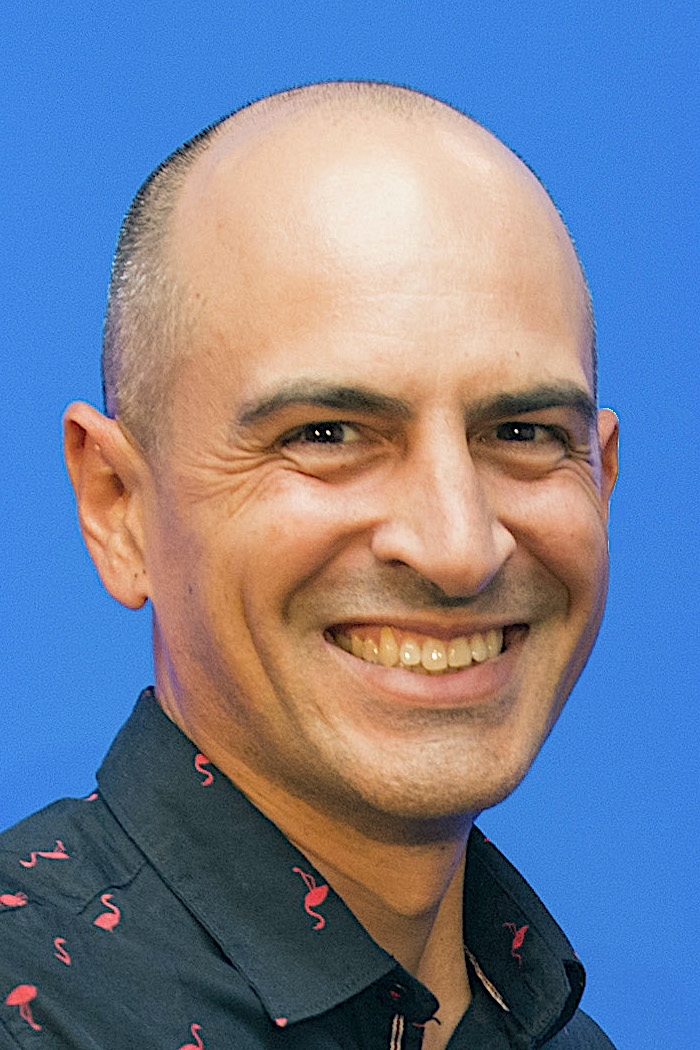Dr. Trevor de Clercq
Professor

Departments / Programs
Degree Information
- BS, Middle Tennessee State University (2024)
- PHD, Eastman School of Music (2012)
- MA, Eastman School of Music (2008)
- MM, New York University (2000)
- AB, Cornell University (1996)
Areas of Expertise
Music Theory, Popular Music, Empirical Musicology, Corpus Studies, Rhythm and Meter, Music Cognition, Music Technology, Audio Theory
Biography
Trevor de Clercq is Professor in the Recording Industry faculty at Middle Tennessee State University, where he serves as coordinator for the musicianship curriculum and teaches coursework in music technology and audio theory. He has previously taught at Ithaca College, Hofstra University, Adelphi University, the Eastman School of Music, and the University of Rochester.
Trevor's academic training includes degrees from Cornell University (BA in music theory and composition), New Yor...
Trevor de Clercq is Professor in the Recording Industry faculty at Middle Tennessee State University, where he serves as coordinator for the musicianship curriculum and teaches coursework in music technology and audio theory. He has previously taught at Ithaca College, Hofstra University, Adelphi University, the Eastman School of Music, and the University of Rochester.
Trevor's academic training includes degrees from Cornell University (BA in music theory and composition), New York University (MM in music technology), the Cleveland Institute of Electronics (AAS in electronics engineering technology), the Eastman School of Music (MA and PhD in music theory), and MTSU (BS in mathematics with a professional concentration in statistics). His primary areas of research include the theory and analysis of popular music, statistical studies of music, recording technology, and music cognition. His work is has been published in various edited collections and academic journals—including Popular Music, Music Theory Online, the Journal of Music Theory, Music Theory Spectrum, Empirical Musicology Review, the Journal of New Music Research, the Journal of Music Theory Pedagogy, Engaging Students, Music Theory and Analysis, and the Dutch Journal of Music Theory—and he has presented at various regional, national, and international conferences on music theory, music cognition, and music pedagogy. He has served as a member of the editorial boards for Music Theory Spectrum, Musicae Scientiae, the Journal of Music Theory Pedagogy, and Empirical Musicology Review, and was Interim Associate Editor for Music Theory Online. He is currently co-editor of Theory and Practice, the annual journal for the Music Theory Society of New York State. His Nashville Number System Fake Book was published by Hal Leonard in 2015, and his textbook The Practice of Popular Music: Understanding Harmony, Rhythm, Melody, and Form in Commercial Songwriting was published by Routledge in 2024.
Prior to his academic career, Trevor worked in the recording industry around New York City. He gained experience at Sony Music Studios, Greene Street Recording, and Jarvis Studios before working as senior technician at Right Track Recording, where he supported albums by artists such as Mariah Carey, Britney Spears, Fabolous, Pat Metheny, Nas, the Kronos Quartet, Rod Stewart, and James Taylor. After Right Track, he worked as technical specialist for professional audio and video at The New School, where he designed, installed, and maintained three recording studios, four video editing suites, thirteen multimedia classrooms, and numerous open-lab computer workstations.
In addition to his academic and technical background, Trevor is a singer-songwriter and has self-published eleven albums to date of lo-fi, indie, alt-country, bedroom-pop songs. He records under the moniker "Secretariat," and his music can be streamed on Spotify, Pandora, Amazon Music, and other platforms. He has also written music for film, stage, and radio, including pieces for NPR and PRI. His most recent project is producing arrangements of toplines written by British singer-songwriter Kate McGill under the artist name "Electrekated," available on Spotify, Pandora, Amazon Music, and elsewhere. Fun fact: his rendition of "Silent Night" was included as diegetic music in the film Fahrenheit 9/11. Trevor plays piano, guitar, bass, and cello (plus a bit of banjo and mandolin).
Courses
- Commercial Musicianship
- Advanced Commercial Musicianship
- Digital Audio Technology
- Introduction to MIDI and Sound Synthesis
- Audio Signals and Systems
- Production Seminar III


